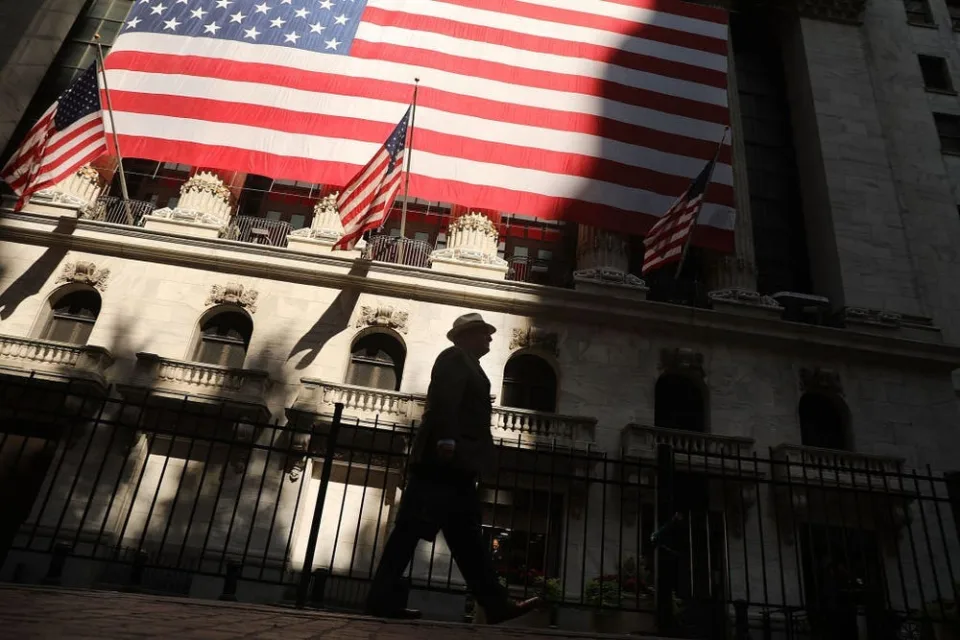News
Why the last bears on Wall Street are worried about the stock market in 2025

Wall Street's 2025 stock market outlooks are out, the mood is overwhelmingly bullish.
With many firms pivoting from prior bear calls and turning optimistic after this year's rally, there are now just two firms that expect the S&P 500 to have a down year in 2025.
The first is Stifel, which expects a 10%-15% correction in the stock market next year, with the S&P 500 index ending in the "mid 5,000s," Meanwhile, BCA Research expects a 27% decline to 4,450.
That's in stark contrast to the rest of Wall Street. The average 2025 year-end price target for the S&P 500 is 6,539, representing potential upside of about 8% from current levels.
Here's what the two last bears on Wall Street are worried about for the stock market heading into 2025.
Stifel: Extreme valuations and a slowing economy
According to Barry Bannister, chief equity strategist at Stifel, stock market valuations are at extremes, as is the outperformance of growth stocks relative to value stocks.
"The S&P 500 has had 4 prior P/E ratio over-valuation 'manias' above the 150Y [year] trendline — and 2024 is the 5th mania," Bannister said in the firm's outlook published on Thursday.
Bannister said the extended valuation of the S&P 500 suggests an imminent correction of 10%-15%. Such a decline would send the S&P 500 to the low-to-mid 5,000s level.
On top of high valuations, Bannister said the economy is set to slow, which would be a double whammy for investors.
Bannister expects US real GDP to decelerate to about 1.5% in the second half of 2025 from its recent level of about 3%. At the same time, stick inflation and slowing wage growth could hit consumption, further putting pressure on the economy next year.
Finally, Bannister said he expects the Federal Reserve to pause its interest rate cuts at its January FOMC meeting due to stubborn inflation and "zero fiscal visibility," which should put further pressure on risk assets.
Taken together, Bannister said the expected environment in 2025 "does not appear conducive" to extending an ongoing "equity mania."
Bannister recommends investors own defensive sectors like healthcare, utilities, and consumer staples.
BCA Research: Fading benefit of pandemic-era policies
BCA Research is the most bearish firm on Wall Street, according to data compiled by Bloomberg.
The research firm's 2025 year-end price target is 4,450, which would represent a 27% decline from current levels.
A combination of a weakening economy and a tapped-out consumer has the firm on edge about a potential recession in 2025.
BCA highlighted recent commentary from big-box retailers' earnings calls suggesting that the COVID-era "revenge spending" is nearing its end.
"Revenge spending appears to have run its course, and a widening range of retailers report that consumption momentum has faded," BCA Research said.
At the same time, the labor market is sending mixed signals, with some positive signs as the job openings rate climbed in October, combined with signs of weakness as the quits rate rises and the hires rate declines, hitting a four-year low it set back in June.
BCA Research called it a "one-step-forward-two-steps-back" trend that is a sign of labor softening and could ultimately lead to a recession.
"We expect that continued softening will eventually provoke a wave of layoffs, triggering a vicious circle in which shrinking payrolls beget slower spending, begetting further payroll contraction and still slower spending growth until businesses slash discretionary investment and a recession ensues," BCA Research said in a note earlier this week.
Finally, BCA, like Stifel, believes stock market valuations are at extreme levels. The firm highlighted that the S&P 500 trades at a forward price-to-earnings multiple of about 23x, nearly two standard deviations above its average.
According to BCA Research, the combination of high valuations and a shaky economic backdrop ultimately makes risk-on assets like stocks difficult to buy.
"Although we believe a 2025 recession is more likely than not, risk assets could disappoint even in the absence of a recession, and current prices do not augur well for future returns," the research firm said.
Read the original article on Business Insider

